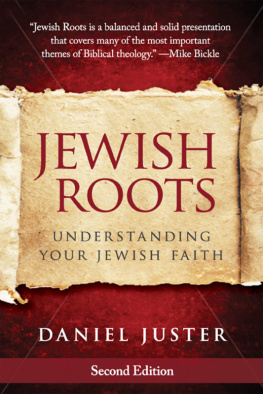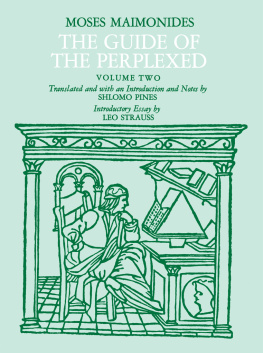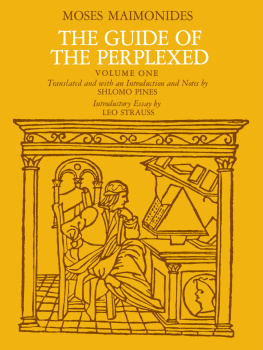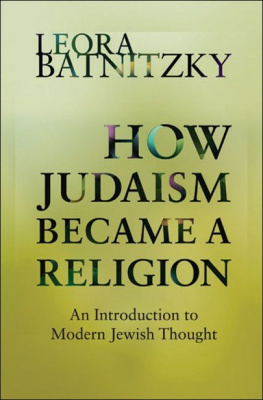MOSES

Moses
A Human Life
AVIVAH GOTTLIEB ZORNBERG

Frontispiece: Study for Moses Saved from the Waters (circa 1785), by Jean-Jacques Lagrene (courtesy of The Athenaeum).
The material on originally appeared, in slightly different form, in Bewilderments: Reflections on the Book of Numbers (New York: Schocken Books, 2015).
Excerpt from Tbingen, January by Paul Celan, translated by John Felstiner, in Paul Celan: Poet, Survivor, Jew by John Felstiner (Yale University Press, 1995).
Reprinted with permission.
Copyright 2016 by Avivah Gottlieb Zornberg.
All rights reserved. This book may not be reproduced, in whole or in part, including illustrations, in any form (beyond that copying permitted by Sections 107 and 108 of the U.S. Copyright Law and except by reviewers for the public press), without written permission from the publishers.
Yale University Press books may be purchased in quantity for educational, business, or promotional use. For information, please e-mail (U.K. office).
Set in Janson type by Integrated Publishing Solutions, Grand Rapids, Michigan.
Printed in the United States of America.
ISBN 978-0-300-20962-4 (hardcover : alk. paper)
Library of Congress Control Number: 2016941501
A catalogue record for this book is available from the British Library.
This paper meets the requirements of ANSI/NISO Z39.481992
(Permanence of Paper).
10 9 8 7 6 5 4 3 2 1
He is on the track of Canaan all his life; it is incredible that he should see the land only when on the verge of death. The dying vision of it can only be intended to illustrate how incomplete a moment is human life, incomplete because a life like this could last forever and still be nothing but a moment. Moses fails to enter Canaan not because his life is too short but because it is a human life.
Kafka, Diaries
CONTENTS
ACKNOWLEDGMENTS
WRITING THIS book has been a return, with a difference, to a subject that has always fascinated me. In the context of the larger biblical narrative, Moses as both man of God and, simply, as the man Moses has been with me throughout my teaching and my writing life. The difference in approaching this project is the challenge of confronting the biographical dimension of the subject. A life of Moses is, in the usual sense, impossible. Moses looms too large in traditional Jewish thought, veering often toward the allegorical, the irreducibly Other. Writing a human life of this unknowable figure seemed to brush against the impossible.
I therefore owe a special debt of gratitude to Steven Zipperstein for inviting me to participate in the Yale University Press series of Jewish Lives and, more importantly, for persisting in his invitation in the face of my hesitations. His warm support of my unusual approach to biography made it possible for me to conceive of this book. Anita Shapira added her voice in encouraging me to write about Moses. As coeditors of the series and outstanding scholars, Steven and Anita honored me with their openness to my work.
I am grateful, too, to the many friends and students in Jerusalem and abroad who expressed interest and shared ideas as I was moving ahead with the writing. I want to single out Betsy Rosenberg for her deep readings of the chapters as they emergedin fine exchange, she offered me her newborn poems; and my agent, Sharon Friedman, whose vivid intelligence mirrored my work back to me. I also want to acknowledge the patient and expert guidance of Ileene Smith and the editorial department at Yale University Press. In particular, I am grateful to Paul Betz for his careful copyediting. And, as always, I want to thank my good friends, Adele and Ron Tauber, for their warm hospitality during my lecture tours in the United States: they have given me a hub for my many flights across the American continent. In Jerusalem, the Matan Institute, the Israel Centre, and Beit Avi Chai have hosted my lectures; while the London School of Jewish Studies has graciously invited me, year after year, to address its students. These lectures and the connection they offered with varied audiences have stimulated my thinking on Moses the man.
Above all, I am grateful to my husband, Eric, for his daily presence in my life. Through his constant loving companionship (not to speak of his inspired cooking) he gives me time and space to absorb myself in learning, teaching, and writing. Eric and our children, Bracha, Yarden, and Avi, together with their partners, Paul, Yael, and Tali, and their children, Miriam, Aluma, Zohar, Shuvi, Yasmine, and Amir, form an abundant world; they each bring their vitality, wit, and beauty to bless my life.
Introduction
I ONCE took part in a bibliodrama workshop at a Jewish Theological Seminary rabbinical retreat. In the morning I taught Bible and rabbinics, and in the evening I joined my students for the workshop. We were asked to enter the role of a biblical character, and I chose to portray Moses in the scene where he beseeches God to allow him to cross over the river Jordan and enter the Holy Land. As I began to speak as Moses, I found myself weeping. I couldnt help wondering why the use of the first-person form had stirred such unsuspected depths of pain. Who was speaking? I as Moses turned out to be a volatile combination.
The pathos of Moses plight had always been with me in my teaching, but never so profoundly... By switching to the first person, I had released a flood of grief.
In a sense, I was allowing myselfmy Ito be read by the text. I was undergoing a harrowing transpersonal experience: exposing myself to the gaze or hearing of the text. Moses words were interspersed with mine; in their otherness, they were also somehow mine.
In this study of Moses, my I is both absent and present. However chastely I avoid using the first person, an implicit I has chosen, for example, to shine a light on W. G. Sebalds Austerlitz, by way of illuminating the figure of Moses, who lived millennia before him (see ). I have allowed Austerlitz to speak for Moses.
This I seeks light where it can be found, even in the dark places of modern Jewish destiny. This I is affected by intimate affinities with aspects of Moses experience. There is a seepage between author and subject that runs both ways. In writing about Moses, I bring myself to bear on my subject. But conversely, in bringing myself to bear, I am affected by the singular presence of my subject. Alchemically, a third presence is created in the space between myself and my subject.
The psychoanalyst Thomas Ogden has eloquently described the intimate experience of reading as a meeting of voices:
A third subject is created in the experience of reading that is not reducible to either writer or reader. The creation of a third subject (that exists in tension with the writer and the reader as separate subjects) is the essence of the experience of reading.
This third subject is I-yet-not-I. Even as we speak, or read, or write, we are spoken; by history, by our own unconscious life, by the one to whom we think we speak. The encounter with another inflects my own voice. The otherness of a text, or of my own I-ness, both disturbs and seduces me. Across a threshold of susceptibility, I am touched, I undergo something that comes from the outside but evokes a profound inwardness.
Next page







